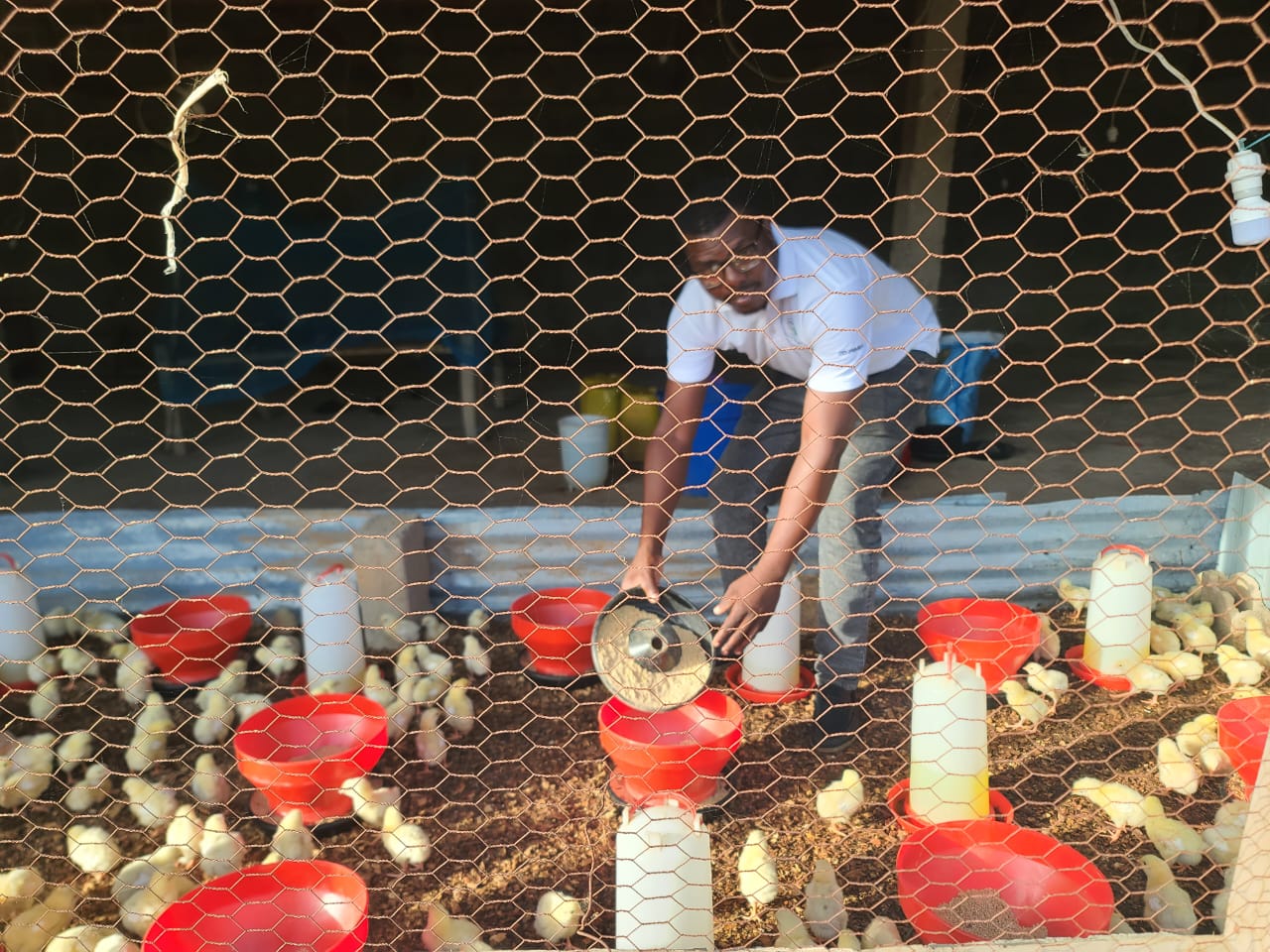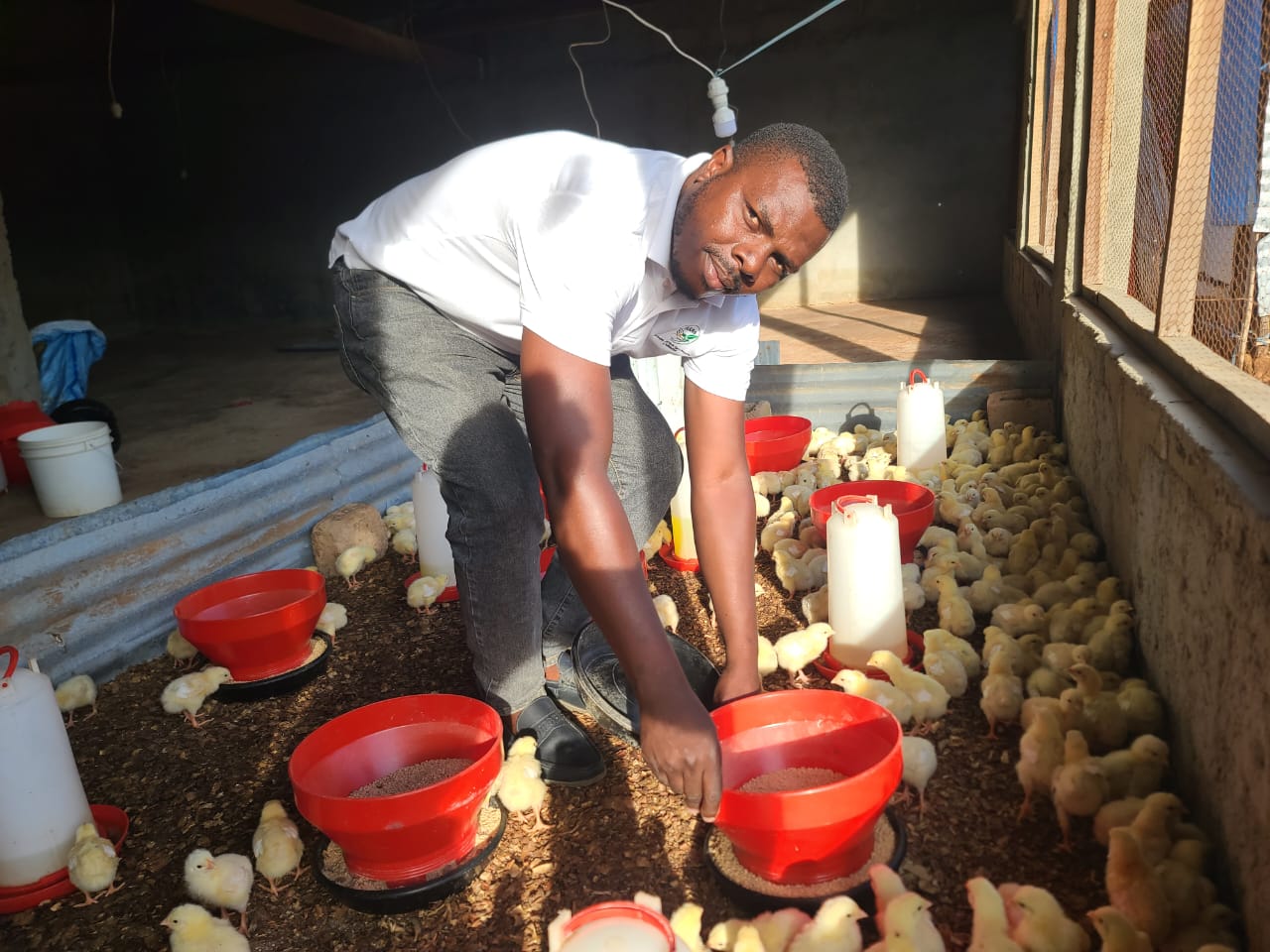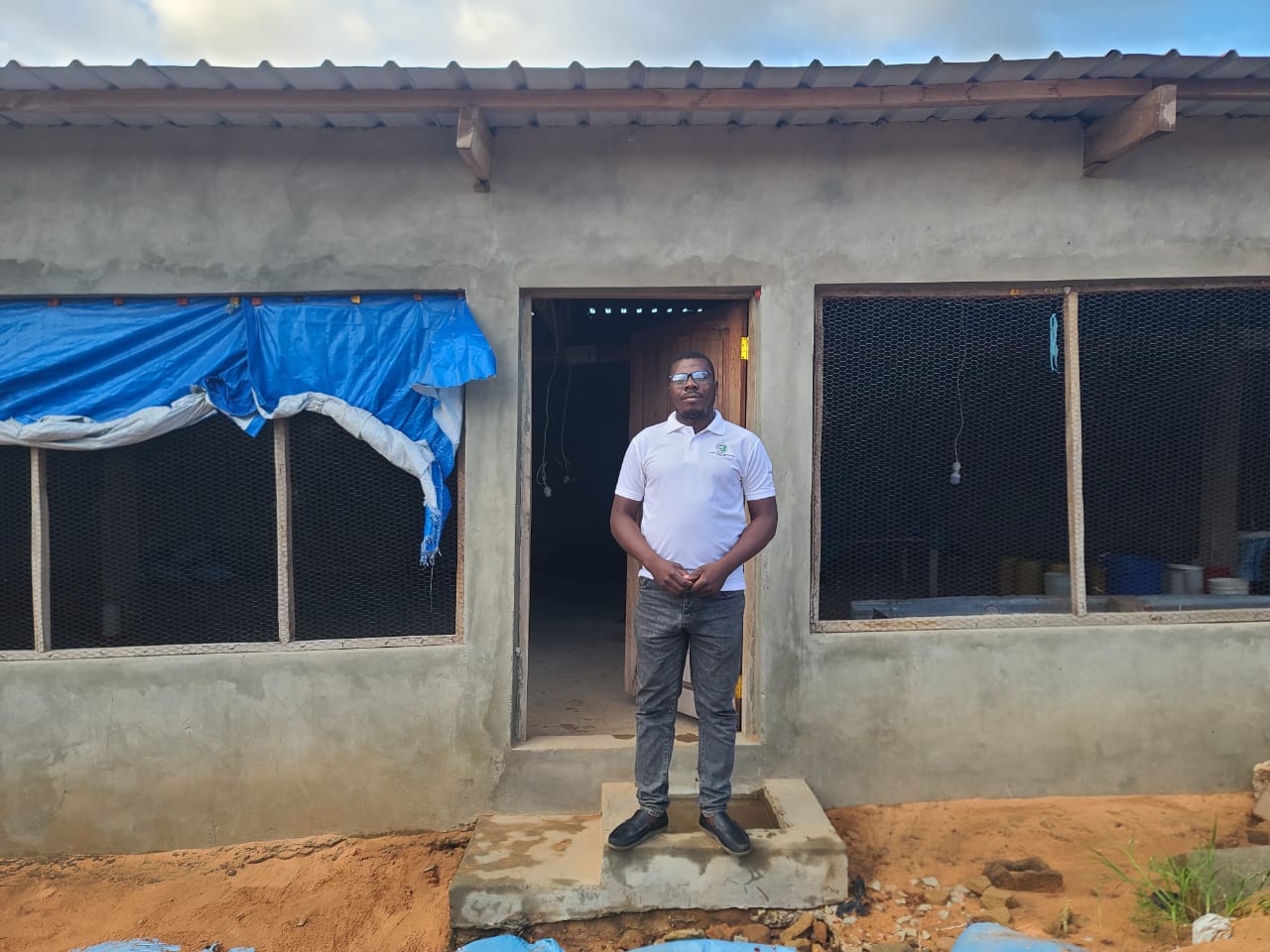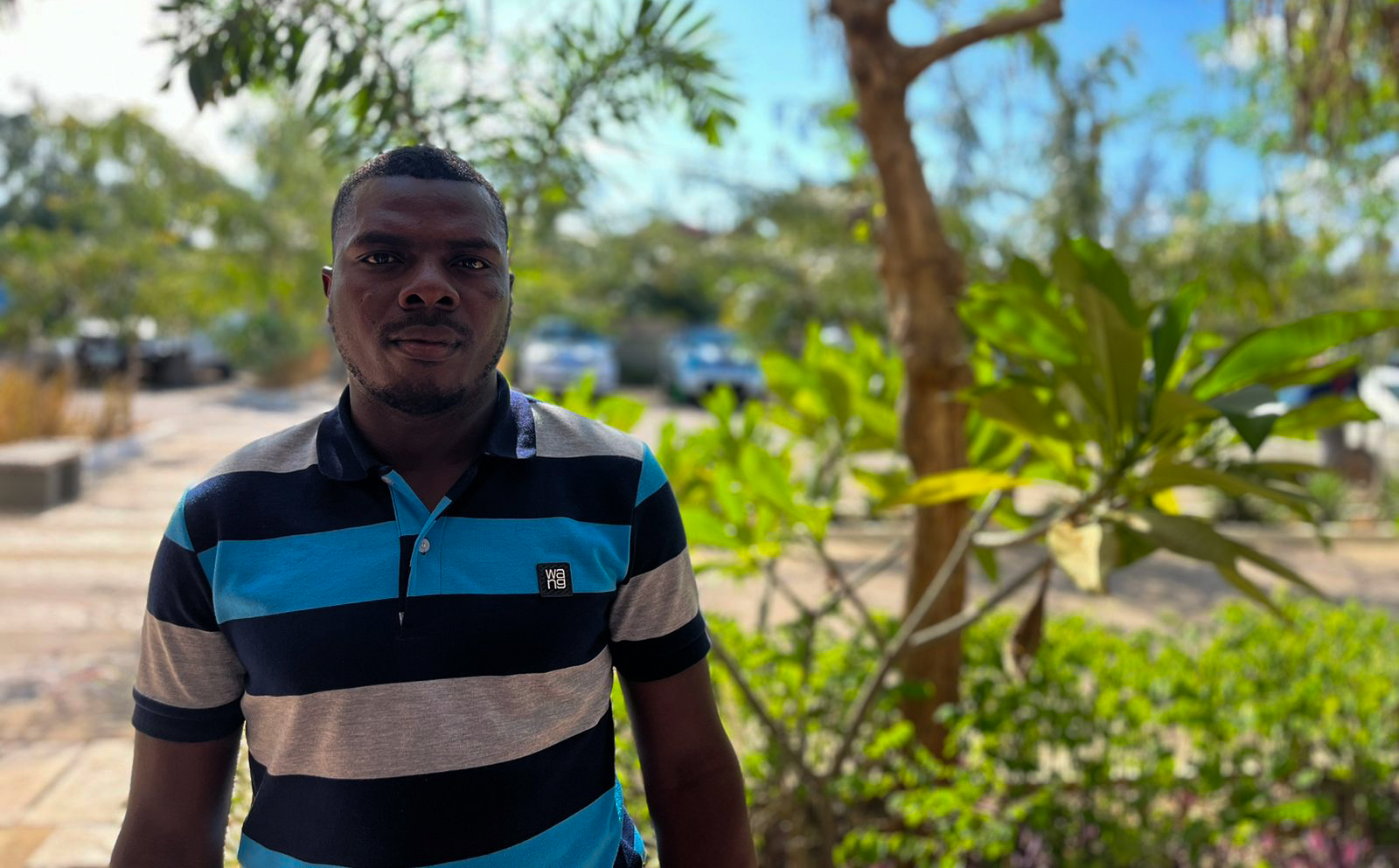Pemba, Mozambique – From the window of his house in Quissanga district, Cabo Delgado, Andrade Vitorino watched helplessly as his poultry farm collapsed due to strong winds and rains caused by cyclone Kenneth in 2019.
But since the 2017, it is the armed conflict in Cabo Delgado province that affected his business and various economic activities, as well as the functioning of food systems in the province.

“One day, a neighbour shouted that we were under attack, and we all ran away, leaving everything behind. A few days later I heard that everything had been burned down. Houses and everything, including my poultry,” said Andrade.
Seated on a plastic chair and turning his back to his house made of clay, in one of Pemba's neighbourhoods, where he is starting new life he says, “I didn't have time to take anything. Just my documents. My house, my aviary and my dreams were left behind.”
Andrade established his company, Avícolas, Serviços Agro-Pecuários e Ambientais (ASAS) in 2017. He produced and sold chicken within his district and in neighbouring communities, often travelling long distances by public transport to sell his products.
“In Quissanga where I lived before there were other producers, but not many in the surrounding areas. That is why my production sold well and I used to go and sell in other communities because I wanted to expand my business. I didn't just depend on Quissanga” he explained.
ASAS poultry farm had a capacity to produce around 200 chicken, which Andrade sold for 250 meticais (approximately 3.88 USD) each. However, he had to lower prices to ensure affordability for his customers.

In Mozambique, poultry is one of the most accessible sources of animal protein. Despite this, the country's per capita consumption of animal protein is only 4.6%, significantly below the United Nations' recommended rate which is around 20% and 35%. Bridging this gap requires increasing the production of animal-sourced food, especially poultry.
Before the conflict, Andrade's business was thriving. But in 2017, the attacks began with a violent assault on a police station, marking the onset of prolonged unrest in Cabo Delgado. Over a million people, including Andrade, were displaced, fleeing to Pemba city and other districts or provinces for refuge, according to United Nations reports.
The Confederation of Economic Associations of Mozambique (CTA) highlights the significant toll of these attacks on entrepreneurship in Cabo Delgado, a province once known for its tourism and economic potential. Andrade’s company, ASAS, was one of many small and medium-sized enterprises (SMEs) left in ruins.
“I’m just one of many refugees from this conflict,” Andrade said. “I fled Quissanga with nothing but the clothes on my back.”
The influx of displaced people has overwhelmed food systems in Pemba, compounding the region’s challenges.
What comes next: rebuilding with strength, resilience, and sustainability
Through the Strengthening Food System in Northen Region project, GAIN has been helping to repair and rebuild local food systems in southern Cabo Delgado, heavily impacted by conflict, drought, and chronic underinvestment.

One key intervention of the project is supporting SMEs and promoting entrepreneurship among internally displaced persons (IDPs), women, and youth. By providing financial grants and technical assistance, GAIN helps businesses like Andrade’s revive operations and expand their capacity to produce and distribute safe, nutritious foods.
“After everything, I'm restarting my business” Andrade shared proudly. “GAIN has built me a new aviary - much better than the one I had in Quissanga. Now, I can produce over 1.500 chicken, with potential to reach 3.000. My dream now is to sell chicken portions for those who can’t afford a whole chicken, benefitting more vulnerable people.”
Razaque Quive, Project Manager at GAIN, highlighted the project’s impact, “we have supported 13 companies, benefiting over 500,000 people in Pemba. In the last quarter of 2024, these companies collectively produced 40,761 chickens, and there is still room to grow.”
With sustained support, these efforts hold the promise of revitalising local food systems and improving nutrition for thousands of Mozambicans.
“This city is bigger than the district where I lived before. Along with me came other people fleeing from other regions and at a certain point the city became more crowded and therefore people needed more food. My business has been a relief. That's why I sell not only near my neighbourhood, but also in more distant areas, to expand my business,” said Andrade.
